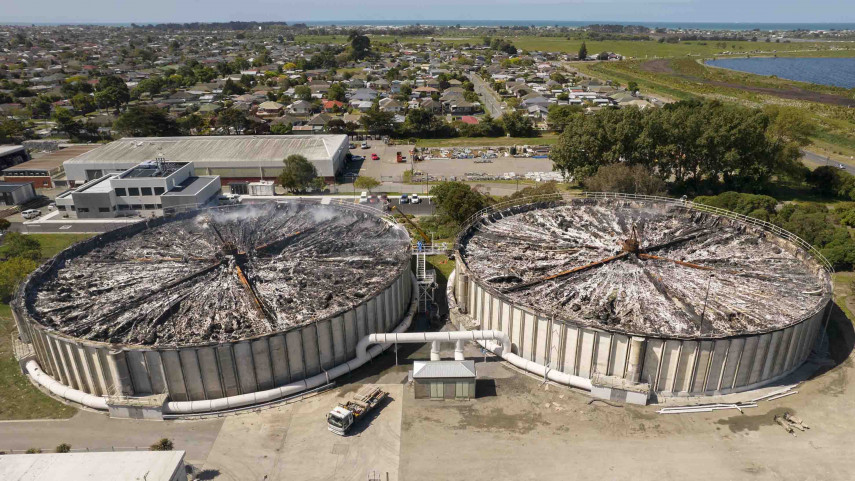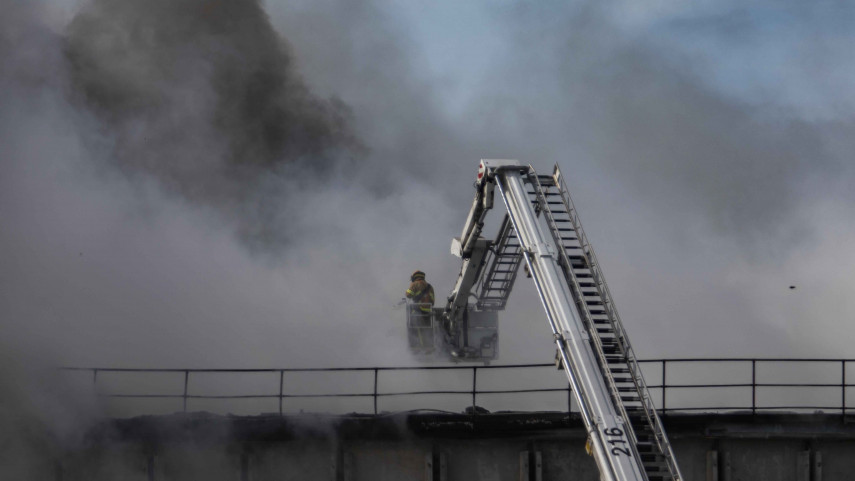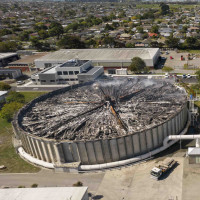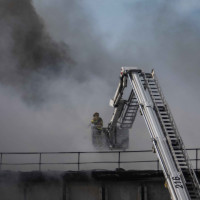
Temporary change to treatment process adding to smell issue

Share this story
Temporary changes to the treatment processes at Christchurch’s fire-damaged wastewater treatment plant may be contributing to odour issues in Bromley area.
“Those living near the wastewater treatment plant will be aware there is an unpleasant smell lingering in the air,’’ says Christchurch City Council Head of Three Waters and Waste Helen Beaumont.
This is because the trickling filters are still smouldering and temporary changes have been made to the treatment process.
“We know the smell from the plant isn’t pleasant and we really appreciate the patience that local residents have shown since Monday’s fire. We are working hard to improve the air quality around the plant,’’ Ms Beaumont says
“The plastic media housed within the two trickling filters is still smouldering. We are following Fire and Emergency New Zealand’s recommendation that we continue to apply as much water as possible. A number of misters and sprinklers have been set up and we will be adding more.
“In the interim, we are pumping clear wastewater over the filters to prevent re-ignition of the fire. We hope to be in a position to be able to stop doing that by early next week.
“It is also possible that there is some organic material within the plastic media which is decomposing. We have put in place misters to suppress the odour and will be investigating de-odourising chemicals over the next few days.’’
Ms Beaumont says Monday’s fire has forced changes to the wastewater treatment process, which is potentially adding to the odour issues.
“Due to potential contamination of the biological material from the bottom of the trickling filters, we have changed our sludge handling practices.
“Normally this material passes from the trickling filters to solids contact tanks and then onto the clarifiers, where the material gets separated into solids and liquids. The liquid goes into the oxidation ponds and the solids goes to the digesters.
“We have had to modify this process. Solids from the clarifiers are now being re-processed through one of the solids contact tanks before being discharged into the oxidation ponds. Unfortunately this change in the sludge handling process is generating more odour than usual from the plant. This is a temporary measure until we can completely bypass the trickling filters,’’ Ms Beaumont says.
“We are looking at ways to mitigate this additional odour and we are working with Environment Canterbury to ensure that we minimise any adverse impacts on the environment from discharges - to both water and the air - from the plant.
Ms Beaumont says if people feel their health is being affected by the smell, they should contact their local general practice team for advice in the first instance.




